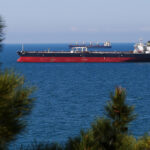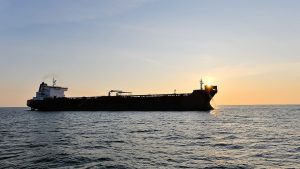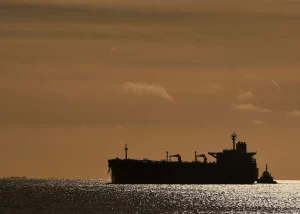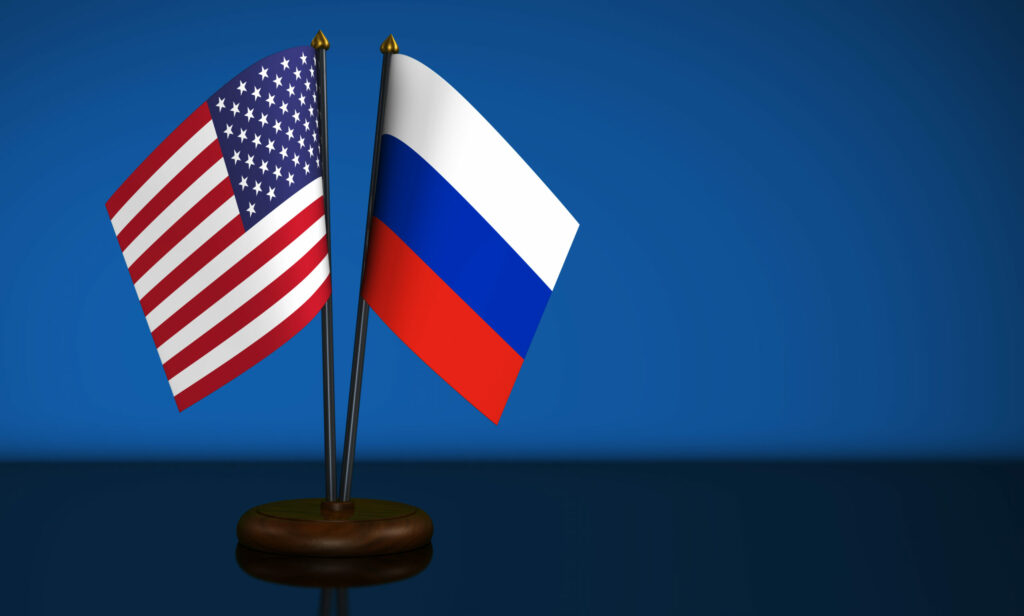Why does Russia invent “schemes” for exporting oil, if there is no direct ban?
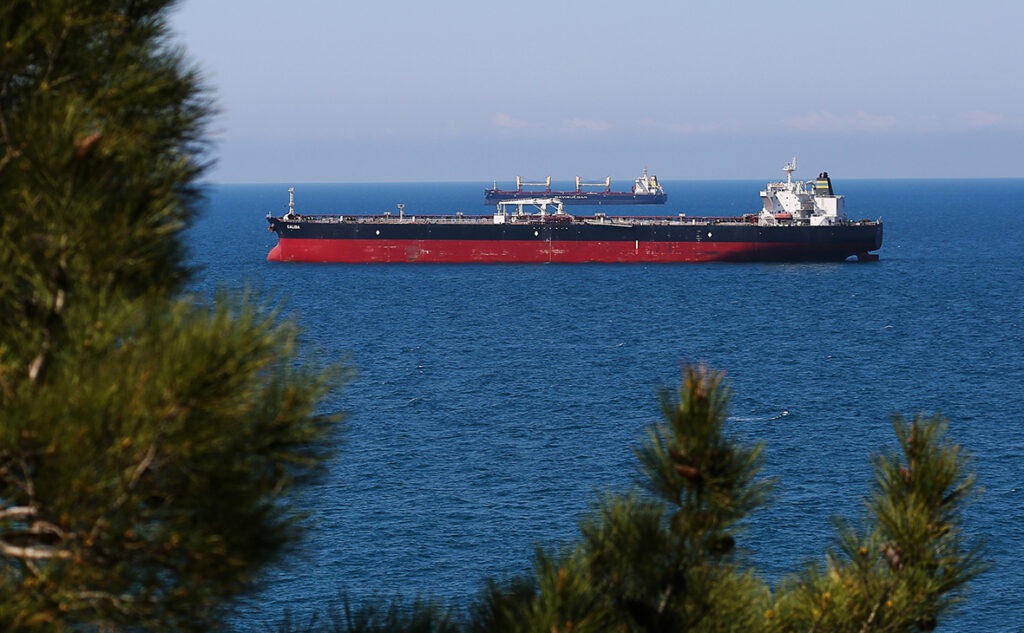
Complex schemes for the supply of oil products from Russia are already being actively used, although the EU ban on the import of raw materials will only come into force in December.
Journalists of the “Radio Liberty” project “Schemes” analyzed the routes of Russian tankers in the Black Sea and discovered two established schemes. This investigation was reprinted by many Ukrainian mass media, but they made an inaccuracy: currently, the EU has not banned the sea import of oil from the Russian Federation. Since April, EU ports have been refusing Russian-flagged vessels – however, this ban is not for commercial vessels, but for state vessels of the Russian Federation. These are military, hydrographic, passenger, scientific vessels, etc.
But the Russian Federation really uses unusual “schemes” to export its oil. Let’s figure out what the meaning is.
The first scheme, which is covered by journalists of “Radio Liberty”, is that full Russian tankers leave Russian ports and stop in the Black Sea near Romania. There, oil is transhipped to vessels under the flags of EU countries using the STS (ship to ship) method. And ships under the EU flag already deliver oil products to the ports of other countries, including the European Union.
So, for example, on July 27, the Russian Mekhanik Antonov tanker near the port of Constanta transferred its cargo to the “Georgia” tanker under the Maltese flag (the ship’s owner is a Greek company). On July 28 and 29, Georgia received the cargo from the Russian vessel VF Tanker 8, which returned empty to the Russian Federation, and on August 10, “Georgia” unloaded in the same Greek port of Agioi Theodoroi.
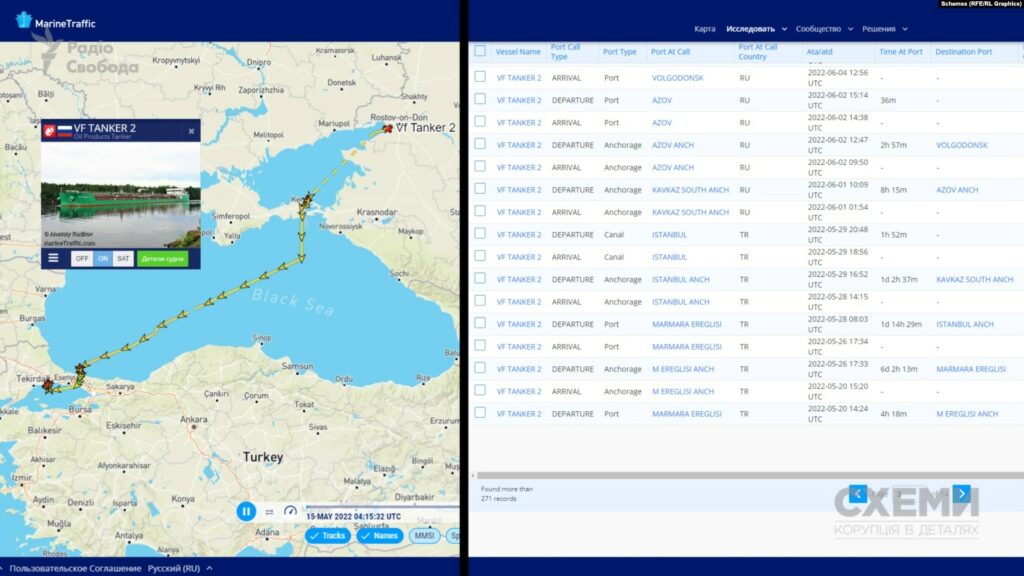
As you can see, Greek shipowners help the Russian Federation to export oil by sea. Previously, USM already wrote that the largest supplier of tankers for the transportation of Russian oil by sea are actually private Greek companies.
The second scheme is implemented with the participation of the storage tanker “New Legend” under the flag of Liberia, which for the fifth month stands near Constanta.
Oil and petroleum products from Russian tankers are first transhipped on the “New Legend”, and then it transships them to other vessels. Then a ship with an “allowed” flag either enters a European port and unloads, or transfers the cargo to another ship that goes to a European port.
Example: On July 2, “New Legend” reloaded the Maltese vessel San Sebastian, which transferred the cargo to the Greek tanker Minerva Vaso. And on July 15, it was already unloaded in the EU country – Greece, in the port of Agioi Theodoroi.
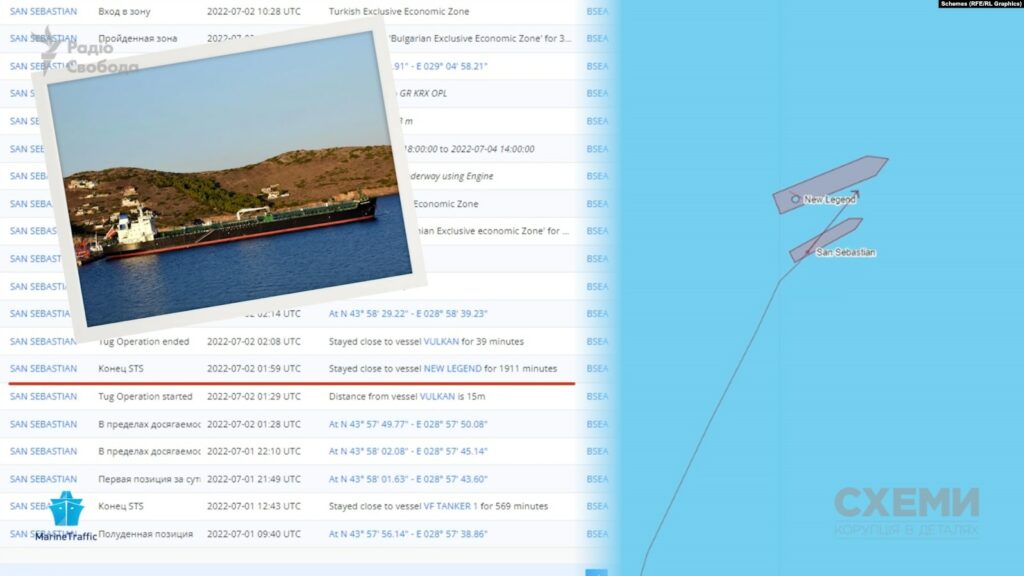
In general, as reported by “Scheme”, about two dozen tankers were involved in this way. What is important: almost all tankers belong to the Volga Shipping company of businessman Volodymyr Lisin. He is in the circle of the inner circle of the terrorist president of the country, Putin, and leads the ranking of the richest people in Russia, according to the version of Russian Forbes in 2022.
Why such difficulties?
The sixth package of EU sanctions (adopted on June 3) prohibits the sea import of Russian oil only from December 5, 2022, and from February 5, 2023 – the import of petroleum products from the Russian Federation. So now, as of September 8, the Russian Federation can still export oil with its tankers to EU ports. Then why does Russia use “alternative” and hidden routes to export its oil?
As Andrii Klymenko, head of the Institute of Black Sea Strategic Studies, said, there are two reasons for such actions.
The first of them is that the Russian Federation does not have a sufficient number of new and powerful tankers. And the existing “big” tankers are currently used to export oil to Turkey, Egypt, etc. Such ships as “Volga Shipping” are simply not capable of long-distance voyages, and cannot export large consignments. That is why they have to “pick up” small parties for five months for “New Legend” (this is the second “scheme” mentioned by the journalists of Radio Svoboda).
Another reason for such a “schematosis” is that many global companies frankly do not want to cooperate with the Russian Federation because of the war it unleashed in Ukraine. For many well-known participants in the maritime transportation market, working with a terrorist country is unacceptable. So Russia has to invent complicated ways of selling its raw materials.
We observe a similar situation on the grain market: the Russian Federation cannot ensure the export of its grain in the necessary volumes. And the ruling elite is trying to blame Ukraine and Turkey for this – they say that the “grain corridor” agreements on the export of Russian grain are not being fulfilled. Although the Istanbul Agreements had nothing to do with the volume of grain sales from the Russian Federation. The international community clearly shows a lack of interest in Russian supplies, and the Russian Federation habitually looks for the culprits of the problem in external circles, and not in its own criminal policy.
Ruslan Soroka.
